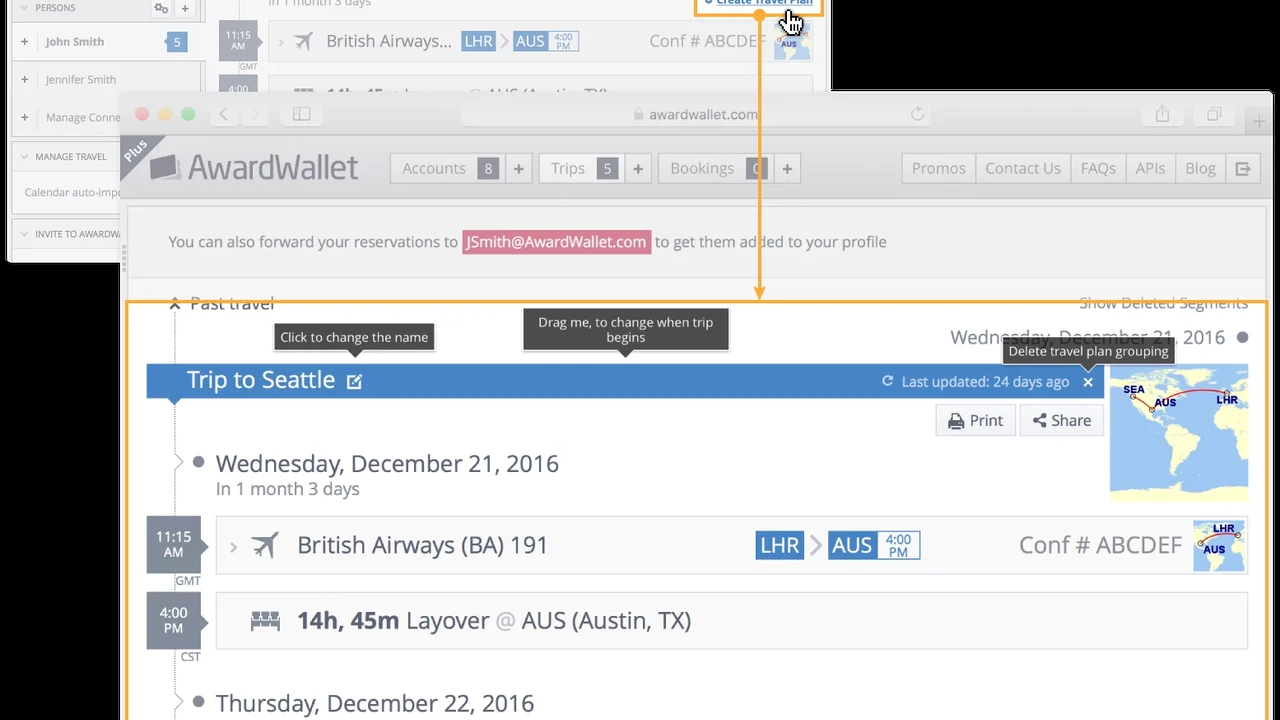Auto Loans Best Rates and Terms
Find the best auto loan rates and terms to finance your next vehicle purchase wisely.

Find the best auto loan rates and terms to finance your next vehicle purchase wisely. Buying a car is a significant financial decision, and securing the right auto loan can save you thousands of dollars over the life of the loan. This comprehensive guide will walk you through everything you need to know about auto loans, from understanding interest rates to comparing different lenders and making an informed choice.
Auto Loans Best Rates and Terms
Understanding Auto Loan Basics What You Need to Know
Before diving into specific products, it's crucial to grasp the fundamentals of auto loans. An auto loan is essentially a secured loan, meaning the car itself acts as collateral. If you default on the loan, the lender can repossess the vehicle. Key terms you'll encounter include:- Principal: The amount of money you borrow to purchase the car.
- Interest Rate: The cost of borrowing money, expressed as a percentage of the principal. A lower interest rate means lower monthly payments and less overall cost.
- Loan Term: The duration over which you agree to repay the loan, typically expressed in months (e.g., 36, 48, 60, 72, or even 84 months). Longer terms often mean lower monthly payments but higher total interest paid.
- Annual Percentage Rate APR: This is the total cost of borrowing, including the interest rate and any additional fees. It's a more accurate representation of the loan's true cost.
- Down Payment: An upfront payment you make towards the purchase of the car. A larger down payment reduces the amount you need to borrow, potentially leading to better loan terms.
Factors Influencing Your Auto Loan Rates and Terms
Several factors play a significant role in determining the interest rate and terms you'll be offered. Understanding these can help you prepare and potentially secure a better deal.Credit Score The Ultimate Determinant for Auto Loan Eligibility
Your credit score is arguably the most critical factor. Lenders use it to assess your creditworthiness and the likelihood of you repaying the loan. Generally, a higher credit score (e.g., 700+) will qualify you for the lowest interest rates. If your credit score is lower, you might still get a loan, but the interest rate will likely be higher to compensate the lender for the increased risk.Debt to Income Ratio Managing Your Financial Obligations for Better Auto Loan Offers
Your debt-to-income (DTI) ratio compares your total monthly debt payments to your gross monthly income. Lenders prefer a lower DTI, as it indicates you have more disposable income to cover your car payments. A DTI of 36% or less is generally considered favorable.Loan Term Choosing the Right Duration for Your Auto Loan
As mentioned, the loan term impacts both your monthly payment and the total interest paid. While a longer term means lower monthly payments, you'll end up paying more in interest over time. Conversely, a shorter term has higher monthly payments but a lower overall cost. Consider what you can comfortably afford each month without stretching your budget too thin.Down Payment The Power of Upfront Investment in Your Car Purchase
Making a substantial down payment reduces the amount you need to finance, which can lead to a lower interest rate and smaller monthly payments. It also shows lenders that you're serious about the purchase and have some equity in the vehicle from the start.Vehicle Age and Type How Your Car Choice Affects Loan Terms
New cars often qualify for lower interest rates than used cars because they are considered less risky by lenders. The type of vehicle can also play a role; luxury or high-performance cars might have different lending criteria than more standard models.Where to Get an Auto Loan Comparing Lenders for the Best Deals
There are several avenues for securing an auto loan, each with its own advantages and disadvantages. It's always wise to shop around and compare offers from multiple lenders.Dealership Financing Convenience vs Competitive Auto Loan Rates
Many car dealerships offer financing options directly. This can be convenient, as you can complete the entire purchase process in one place. However, dealership financing might not always offer the most competitive rates. They often work with a network of lenders and may mark up the interest rate to earn a commission.Banks and Credit Unions Traditional Lenders for Auto Loans
Traditional banks and credit unions are excellent sources for auto loans. Credit unions, in particular, are known for offering competitive rates and more personalized service, as they are member-owned. It's a good idea to check with your existing bank or credit union first, as they may offer special rates to loyal customers.Online Lenders Digital Solutions for Auto Loan Applications
Online lenders have become increasingly popular due to their convenience and often competitive rates. They allow you to apply for pre-approval from the comfort of your home, often with quick decisions. Examples include LightStream, Capital One Auto Finance, and Carvana (which also sells cars).Top Auto Loan Providers and Their Offerings A Detailed Comparison
Let's look at some specific lenders and what they bring to the table. Keep in mind that rates and terms can vary based on your creditworthiness and market conditions.LightStream Best for Excellent Credit and Flexible Auto Loan Terms
LightStream, a division of Truist Bank, is renowned for offering highly competitive rates to borrowers with excellent credit. They offer unsecured loans, meaning the car isn't used as collateral, which can be a benefit. They also offer a rate beat program, promising to beat a competitor's rate by 0.10 percentage points under certain conditions.- Pros: Very low rates for excellent credit, flexible loan terms (24-84 months), no fees, quick funding.
- Cons: Strict credit requirements, no pre-qualification option without a hard credit inquiry.
- Typical APR Range: 3.99% - 10.99% (as of late 2023, subject to change).
- Use Case: Ideal for borrowers with strong credit looking for the absolute lowest rates and flexibility.
Capital One Auto Finance Streamlined Auto Loan Process for Various Credit Scores
Capital One Auto Finance is a popular choice for its user-friendly online platform and ability to work with a wide range of credit scores, including those with less-than-perfect credit. They offer pre-qualification with a soft credit inquiry, allowing you to see potential rates without impacting your score.- Pros: Pre-qualification available, works with various credit profiles, large network of dealerships, easy online application.
- Cons: Rates might not be as low as LightStream for excellent credit, limited to their network of dealerships for direct financing.
- Typical APR Range: 5.99% - 24.99% (as of late 2023, subject to change).
- Use Case: Good for borrowers who want to pre-qualify and compare offers from a reputable lender, especially if their credit isn't top-tier.
Bank of America Auto Loans Competitive Rates and Existing Customer Benefits
Bank of America offers competitive auto loan rates and often provides discounts for existing customers. They have a straightforward application process and offer both new and used car loans, as well as refinancing options.- Pros: Competitive rates, potential discounts for existing customers, wide range of loan products, online application.
- Cons: May require a higher credit score for the best rates, less flexible for those with poor credit.
- Typical APR Range: 5.49% - 15.99% (as of late 2023, subject to change).
- Use Case: Excellent for current Bank of America customers or those with good to excellent credit seeking a traditional banking experience.
Chase Auto Loans Diverse Options and Dealer Network
Chase offers a variety of auto loan options, including new and used car loans, as well as lease-end financing. They have a strong relationship with many dealerships, making it easy to finance through them at the point of sale. They also offer pre-qualification.- Pros: Wide range of loan products, extensive dealer network, pre-qualification available, competitive rates for good credit.
- Cons: May not be the best option for those with lower credit scores, some fees may apply.
- Typical APR Range: 5.79% - 18.99% (as of late 2023, subject to change).
- Use Case: Suitable for borrowers with good credit who prefer to finance through a major bank or a dealership in Chase's network.
Local Credit Unions Personalized Service and Often Lower Auto Loan Rates
Don't overlook your local credit unions! They are often able to offer lower interest rates than larger banks because they are non-profit organizations focused on serving their members. They also tend to be more flexible with lending decisions and offer personalized service.- Pros: Often the lowest rates, personalized service, more flexible lending criteria, member-focused.
- Cons: May require membership (which is usually easy to obtain), fewer online tools than larger lenders.
- Typical APR Range: Can be as low as 4.49% - 12.99% (highly variable by credit union and location).
- Use Case: Highly recommended for anyone seeking the absolute best rates and a more community-oriented lending experience.
The Auto Loan Application Process Step by Step Guide
Applying for an auto loan doesn't have to be daunting. Here's a general overview of the steps involved:- Check Your Credit Score: Before you even start looking at cars, get a free copy of your credit report and score. This will give you an idea of what rates you might qualify for and allow you to dispute any errors.
- Determine Your Budget: Figure out how much you can realistically afford for a monthly car payment, including insurance, fuel, and maintenance.
- Get Pre-Approved: Apply for pre-approval with a few different lenders (banks, credit unions, online lenders). This gives you a firm offer and strengthens your negotiating position at the dealership. Pre-approval typically involves a soft credit inquiry, which doesn't hurt your score.
- Shop for a Car: With your pre-approval in hand, you can confidently shop for a car knowing your financing is secured.
- Compare Loan Offers: Once you've found a car, the dealership might offer their own financing. Compare their offer with your pre-approved loans. Don't be afraid to negotiate!
- Finalize the Loan: Choose the best loan offer and complete the paperwork. Read all terms and conditions carefully before signing.
Refinancing Your Auto Loan When and Why It Makes Sense
Refinancing your auto loan means replacing your current loan with a new one, often with a lower interest rate or different terms. This can be a smart move if:- Your Credit Score Has Improved: If your credit score has significantly increased since you first took out the loan, you might qualify for a much lower interest rate.
- Interest Rates Have Dropped: If general interest rates have fallen, you could save money by refinancing.
- You Want to Lower Your Monthly Payments: You can extend your loan term to reduce your monthly payments, though this will likely increase the total interest paid.
- You Want to Shorten Your Loan Term: If you have extra cash, you can refinance to a shorter term to pay off the car faster and save on interest.
Tips for Securing the Best Auto Loan Rates and Terms
Here are some actionable tips to help you get the most favorable auto loan:- Boost Your Credit Score: Pay bills on time, reduce existing debt, and avoid opening new credit accounts before applying for an auto loan.
- Save for a Down Payment: A larger down payment reduces your loan amount and shows financial responsibility. Aim for at least 10-20% of the car's value.
- Shop Around for Lenders: Don't just take the first offer. Get quotes from multiple banks, credit unions, and online lenders.
- Get Pre-Approved: This gives you leverage at the dealership and a clear understanding of your financing options.
- Keep the Loan Term Short: While longer terms mean lower monthly payments, they cost more in the long run. Opt for the shortest term you can comfortably afford.
- Negotiate the Car Price Separately: Focus on getting the best price for the car first, then discuss financing. Don't let the dealership combine these negotiations.
- Avoid Add-ons You Don't Need: Dealerships often push extended warranties, GAP insurance, and other add-ons. Research these carefully and only purchase what you truly need.
:max_bytes(150000):strip_icc()/277019-baked-pork-chops-with-cream-of-mushroom-soup-DDMFS-beauty-4x3-BG-7505-5762b731cf30447d9cbbbbbf387beafa.jpg)






